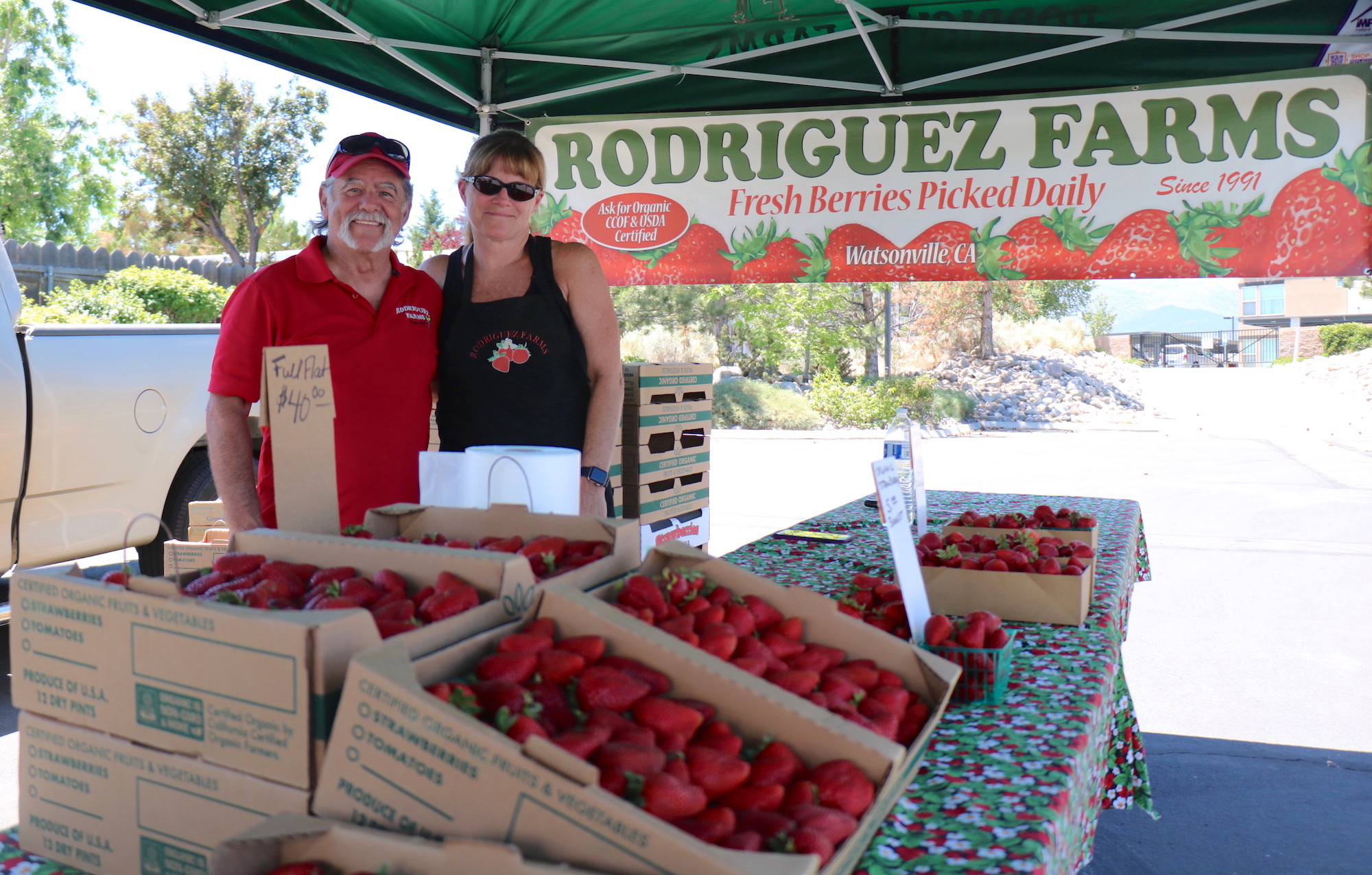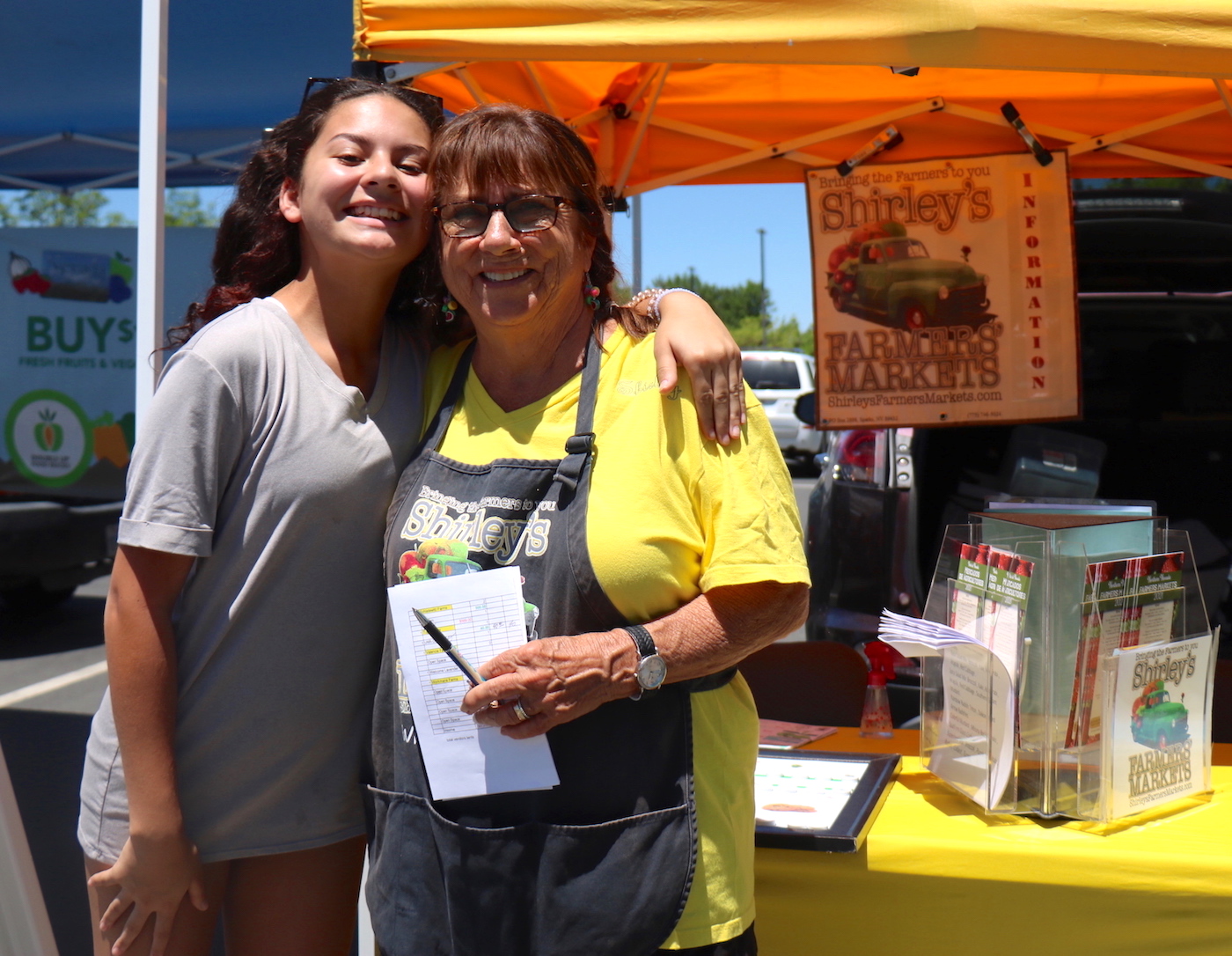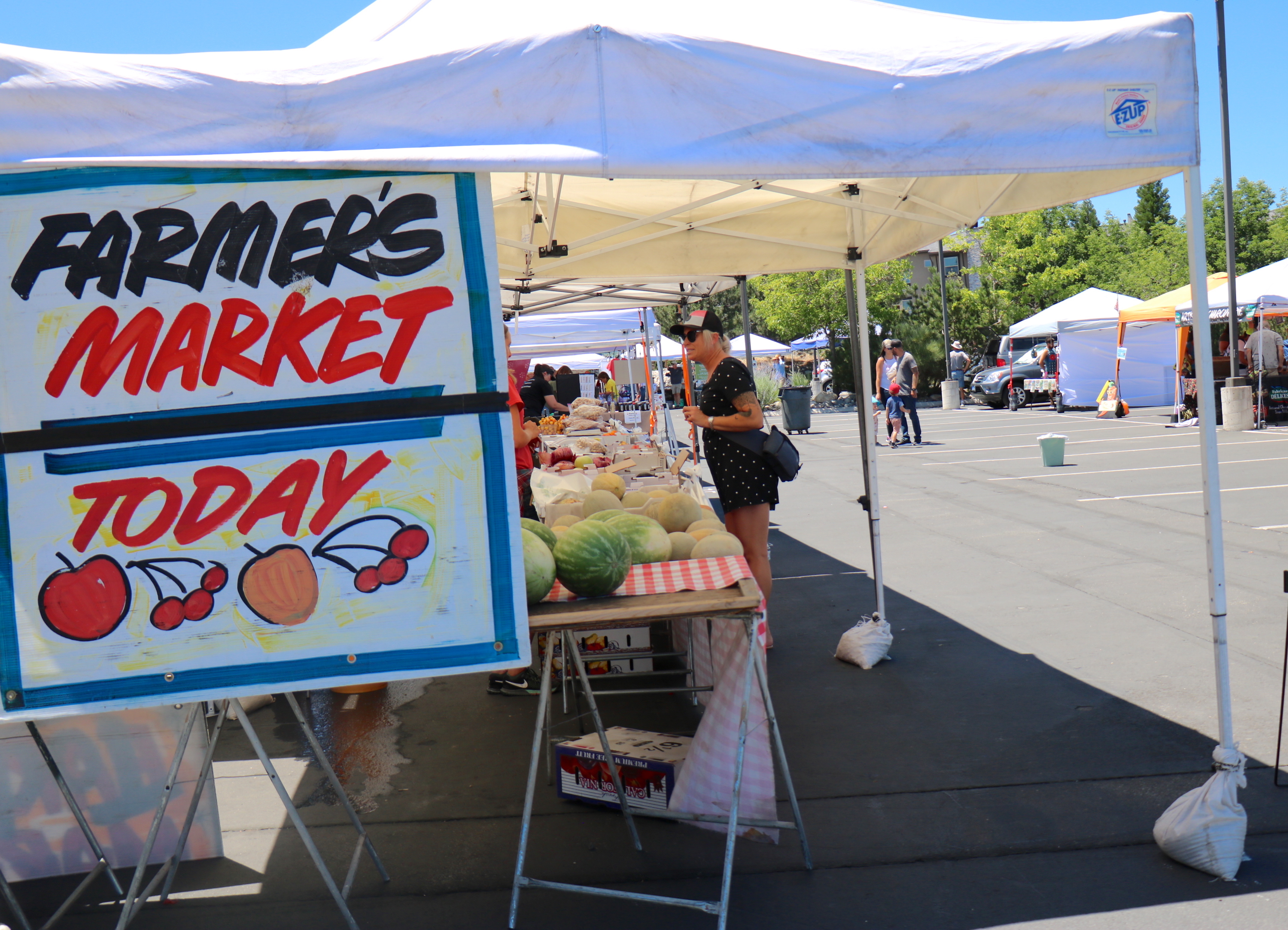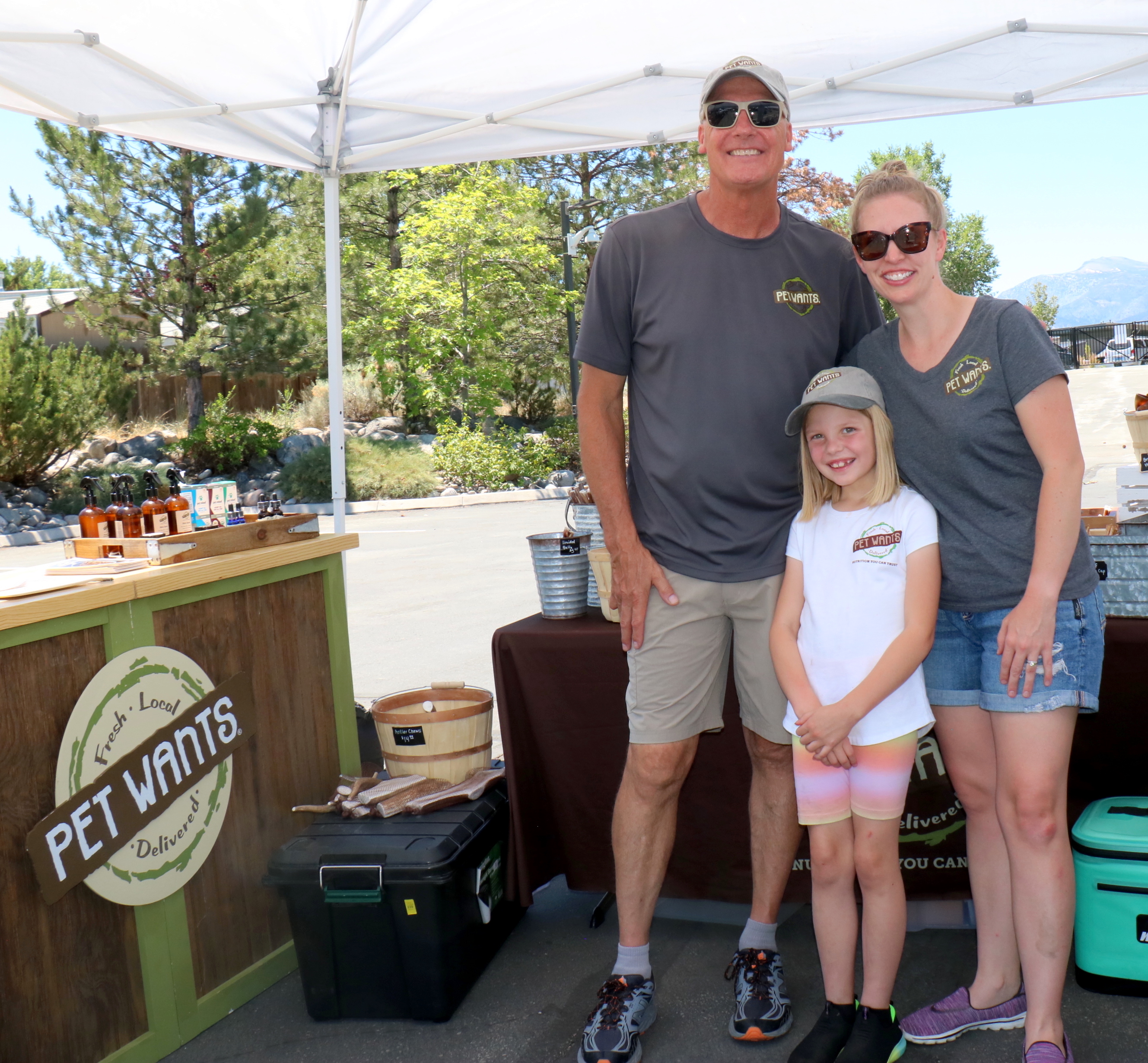Sandy Torok, left, shops at Shirley’s Farmers’ Market in South Reno with her daughter, Molly, and granddaughter, Adalynn, on June 26, 2021. Torok is buying strawberries from Lisa Dermo, a seller for Rodriguez Farms, based in Watsonville, California. Photo by Kaleb Roedel.
 Mike and Lisa Dermo, pictured here on June 26, 2021, have been selling Rodriguez Farms berries at Shirley’s Farmers’ Markets in Reno for 18 years. Photo: Kaleb M. Roedel / NNBW
Mike and Lisa Dermo, pictured here on June 26, 2021, have been selling Rodriguez Farms berries at Shirley’s Farmers’ Markets in Reno for 18 years. Photo: Kaleb M. Roedel / NNBW
 Shirley Sponsler, manager of Shirley’s Farmers’ Markets, stands with her granddaughter, Delaney, at her South Reno location on June 26, 2021. Photo: Kaleb M. Roedel / NNBW
Shirley Sponsler, manager of Shirley’s Farmers’ Markets, stands with her granddaughter, Delaney, at her South Reno location on June 26, 2021. Photo: Kaleb M. Roedel / NNBW
 Shirley’s Farmers’ Market in South Reno is located inside the parking lot of Tamarack Junction Casino on South Virginia Street. Photo: Kaleb M. Roedel / NNBW
Shirley’s Farmers’ Market in South Reno is located inside the parking lot of Tamarack Junction Casino on South Virginia Street. Photo: Kaleb M. Roedel / NNBW
 Brian Nelson, left, and Bridget Nelson, co-owners of online dog food retailer Pet Wants, stand with their daughter, Alexis, in front of their stand at Shirley’s Farmers’ Market in South Reno. Photo: Kaleb M. Roedel / NNBW
Brian Nelson, left, and Bridget Nelson, co-owners of online dog food retailer Pet Wants, stand with their daughter, Alexis, in front of their stand at Shirley’s Farmers’ Market in South Reno. Photo: Kaleb M. Roedel / NNBW